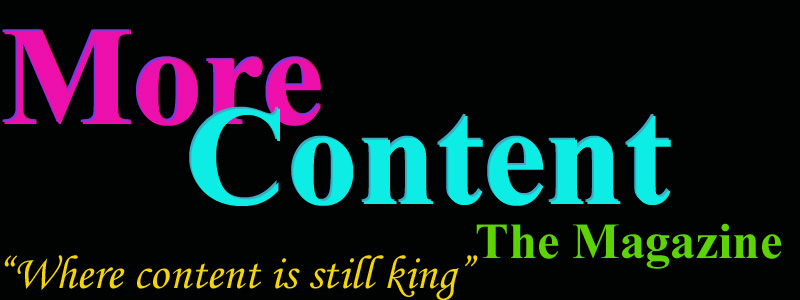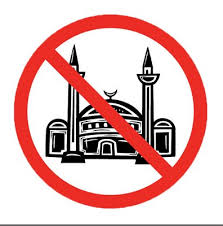 Back to More Content Magazine
Back to More Content Magazine
In the past, the desire to hold on to our control over foreign resources was combined with a reasonable fear of a Stalinist/Maoist style revolution and regime with all the resulting turbulence, death and oppression. That fear became less and less reasonable as the cold war dragged on. When the USSR and the East bloc fell apart, those who benefit from a large military and constant wars needed to find a new enemy.
The end of the cold war was a scary time for the establishment with scary talk about "peace dividends" and a thriving economy by the late 1990s.*2 Enter the neocons with their Plan for a New American Century. The Neo-cons were still upset about the USA's loss in Viet Nam and people's aversion towards senseless wars and wanted to return the USA back to its imperialistic, world-policing glory. In the late 1990s the influential Neo-con political operatives wanted the USA to take advantage of Russia's weakness to strengthen the USA's international power and influence. They found a presidential candidate ready to implement their plan, G.W. Bush, who already had an agenda to finish the war on Iraq and avenge an assassination attempt on his father.
The middle east was an obvious target for a revival of the USA's imperialism since they had most of the known oil at the time. In addition, starting in Iran at the end of the 1970s, the blowback from our 'anti-communist' interventions was growing. Many of the middle eastern dictators we supported banned virtually all political opposition and organizing. They did not interfere with religions much at all in comparison, because they were such an important part of the culture. As a result religious organization and schools became safe havens for organizing resistance to the dictator's regime. That is why religious leaders were the ones able to grab power after dictators were overthrown in Iran, Egypt and elsewhere.
Fundamentalist Islamists are not just hostile towards the west, they also tend to live austere, non-materialist, traditional lifestyles, making them terrible consumers of corporate products. There is nothing more threatening to business interests than people who don't buy stuff from them.
The real struggle is European American businesses versus any government, organization or movement likely to threaten their profits and property. That is a hard war to sell to the people, so it is downplayed. (The "No war for Oil" slogan was rather effective during the protests against the first Iraq war and probably kept that war from expanding or continuing.)
Western religions needed a new threat as much as the military industrial complex did after the collapse of the USSR took the communist threat away. Southern fundamentalist Christians sects in the southeast USA emphasize the Old Testament more than most other sects, and they also have a great interest in the Book of Revelations. That lead to greater conservative Christian concern and identification with Israel. Since Israel has always had an adversarial relationship with Islam, that concern for Israel greatly contributed to conservative Christian's hostility towards Islam. (add in the fact that Christian hostility towards Judaism is very much out of style these days.) In addition, although few will admit it, many Christians are looking forward to the "end times" and consider the return of Israel a fulfillment of Biblical prophecy. These people welcome a war with Israel and Christianity fighting Islam since it will bring them closer to the end times and an ascension to heaven.
The media has also been happy to sell us fear and hatred towards Islam or anyone else, not out of ideology, but just to generate controversy and exciting news.
To summarize, the following are ingredients of the current situation: Angy blowback from past coups, assassinations and interference in elections committed by the west.
Under western controlled dictatorships, Muslim religious groups were allowed to be the only legal organized alternative to the government's power and institutions, making the religious groups the most popular and organized institutions remaining when governments fell.
Fundamentalist Islamists hostile to the west and materialism. Im not denying they exist.
Several Fundamentalist Islamist positions and practices that are hostile towards human rights, esp. for women
Western business interests wanting access to resources (oil!) and markets in the region.
The military industrial complex needing a new threat to justify their continued growth.
Conservative Christians in the USA identifying with Israel and becoming hostile to Muslims.
Many conservative Christians wanting to see a prophecy-fulfilling world war in the middle east.
Neo-cons wanting the USA to take advantage of Russia's weakness at the time to regain the USA's imperial powers and glory.
The election of the Neo-cons' president.
A media happy to promote war and a Christian-Muslim feud to increase sales and ad revenues.
Just add 9/11 to complete the recipe.
*1 For example:
"The 1953 Iranian coup d'ιtat, known in Iran as the 28 Mordad coup, was the overthrow of the democratically elected Prime Minister of Iran Mohammad Mosaddegh on 19 August 1953, orchestrated by the United Kingdom (under the name "Operation Boot") and the United States (under the name TPAJAX Project).
Mossadegh had sought to audit the books of the Anglo-Iranian Oil Company (AIOC), a British corporation (now BP) and to change the terms of the company's access to Iranian petroleum reserves. Upon the refusal of the AIOC to co-operate with the Iranian government, the parliament (Majlis) voted to nationalize the assets of the company and expel their representatives from the country. Following the coup in 1953, a government under General Fazlollah Zahedi was formed which allowed Mohammad-Reza Shah Pahlavi, the Shah of Iran (Persian for king),[9] to rule the country more firmly as monarch. He relied heavily on US and UK support to hold on to power until his own overthrow in February 1979...." Wikipedia
*2 That moment in history has interesting similarities to the end of prohibition when the law enforcement/justice system lost their main crusade and searched for a new one. They soon created a new threat, recreational drugs, especially marijuana. The beauty of that target for the advocates was that the users were mostly the unconventional (bohemians, artists, musicians) or powerless poor and minority people. In addition, many conservatives felt that jazz and black men with marijuana were creating the social change happening at the time (especially for women) that they feared would lead to a change in gender roles, miscegenation and a weakening of the white race.
![]() Back to Oranj Productions Home
Page
Back to Oranj Productions Home
Page
Contact Info
All content Copyright 1993-2015 Oranj Productions.
All Rights Reserved.